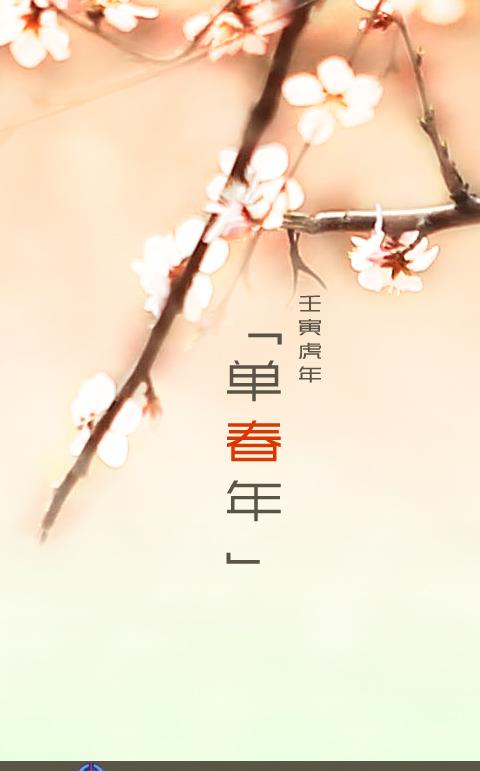Video loading...
Tianjin, 4 Feb (Xinhua) -- On 4 February, Lichun was born. Astronomical science experts said that unlike the "two heads without spring" in the year of the ugly cow that has just passed, the year of the nongyin tiger is a "single spring year" and only one "spring day".

Poster Maker: Feng Juan
The twenty-four solar terms are the knowledge system and social practice formed by the Chinese ancestors by observing the annual movement of the sun, recognizing the changes in the seasons, climate, phenology and other aspects of the year, and gradually improving the knowledge system and social practice, and it is also the earliest calendar in China that combines astronomical, meteorological and phenological knowledge to guide agricultural activities, which is still influencing the Chinese people and guiding people's production and life.
Yang Jing, a member of the Chinese Astronomical Society and a director of the Tianjin Astronomical Society, introduced that Lichun is the first of the twenty-four solar terms, also known as the Spring festival and the First Moon Festival, "Li" is the meaning of "beginning", with Lichun as the beginning of spring. As the saying goes, "the plan of the year lies in the spring", which shows the importance of "establishing a spring day".
The twenty-four solar terms are to divide the earth around the sun in a circle, that is, a solar year is divided into 24 equal parts and listed in the 12 months of the solar calendar, the first month is called "solar terms", the middle of the month is called "middle qi", that is, within a month there is a "festival" and a "qi", simplified to "solar terms".
Since the twenty-four solar terms are determined by the earth's cycle around the sun, it essentially belongs to the solar calendar, while the lunar calendar is formulated according to the cycle of changes in the moon phase, that is, a cycle of the moon's full circle, called a "synodic moon". The lunar calendar is about 11 days less than the solar calendar year. In order to coordinate the number of days between the lunar calendar and the solar calendar, it is necessary to use the method of "placing leaps" to adjust, with 12 months in the common year and 13 months in the leap year, with an average of one cycle per 19 years, so that the calendar that combines the lunar calendar and the solar calendar is called the "luni-yang calendar", that is, the lunar calendar.
The number of days in a leap year (with a leap month) is about 30 days longer than in a lunar year (without a leap month), so there are 25 solar terms in a leap year, while a lunar leap year has 23 or 24 solar terms. Because LiChun is at the end of the year or at the beginning of the year, it is often the case that the Spring Festival qi runs to the end of the previous lunar year or crosses to the beginning of the next lunar year, which shows the different situations of "double spring", "single spring" or "no spring" in the lunar year. Basically, on average, in every 19 years, there are 7 years of "double spring", 7 years of "no spring", and 5 years of "single spring".
The Year of the Tiger is a lunar year with 355 days, specifically, the corresponding solar calendar date is From February 1, 2022 to January 21, 2023, during which there is only one "Li Chun Day", which is on February 4 of the solar calendar. The following Year of the Rabbit is a lunar leap year, with a leap February, so there are two "Li Chun Days", both on February 4 of the solar calendar.
Yang Jing said that the lunar year "double spring", "no spring" and "single spring" are normal calendar changes, which have nothing to do with people's luck and luck, good luck and misfortune, and the public must not be misled.